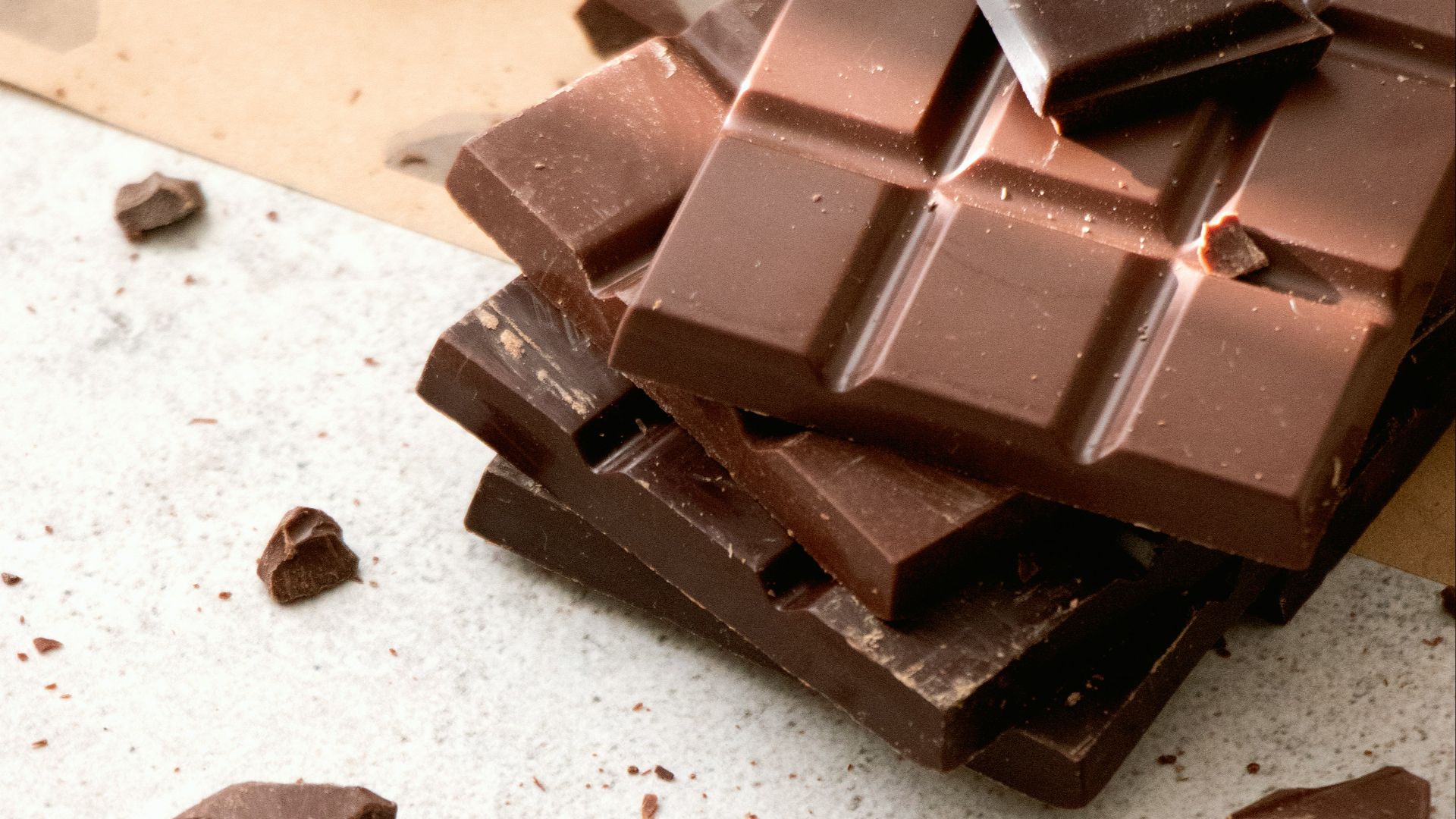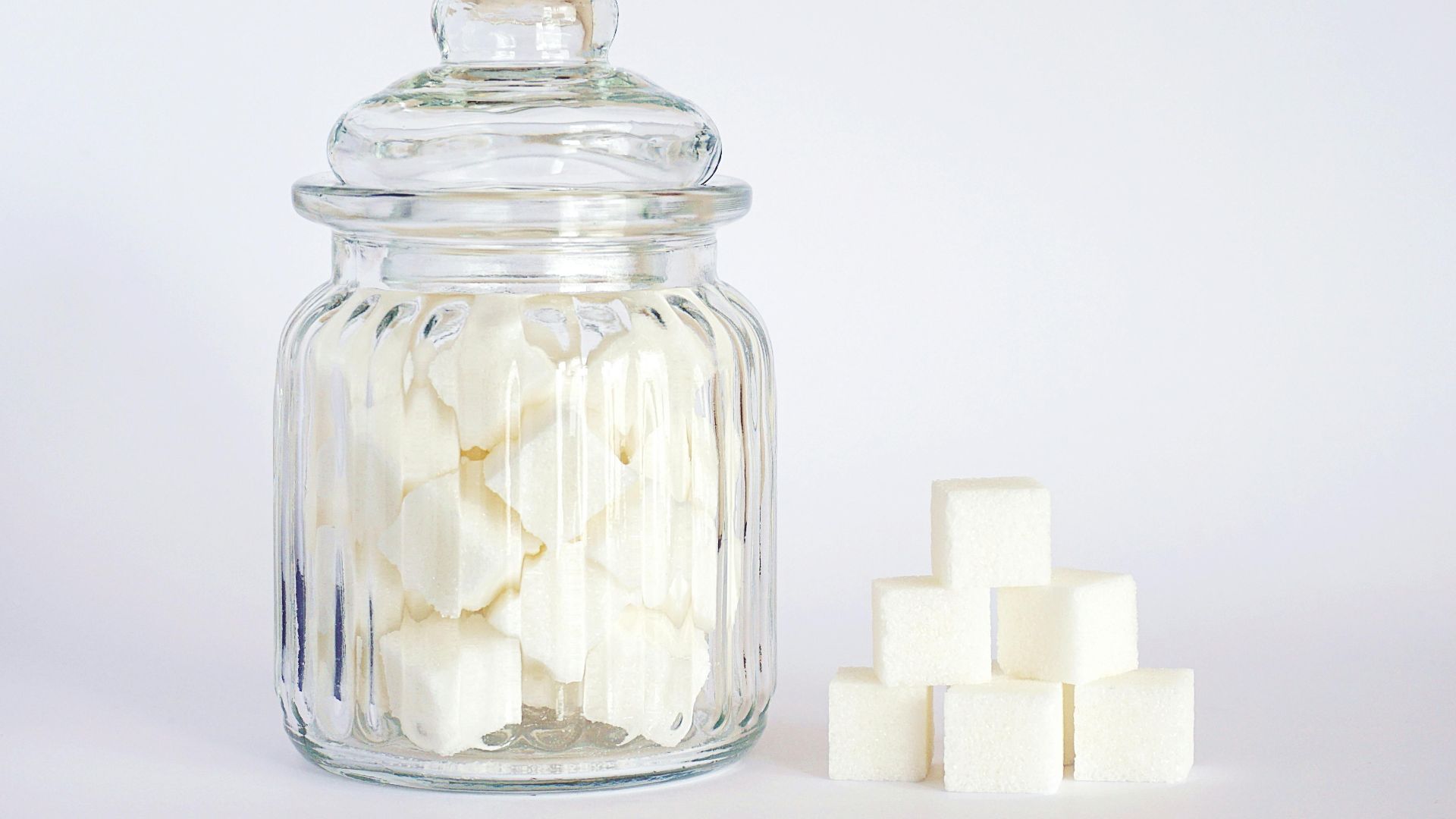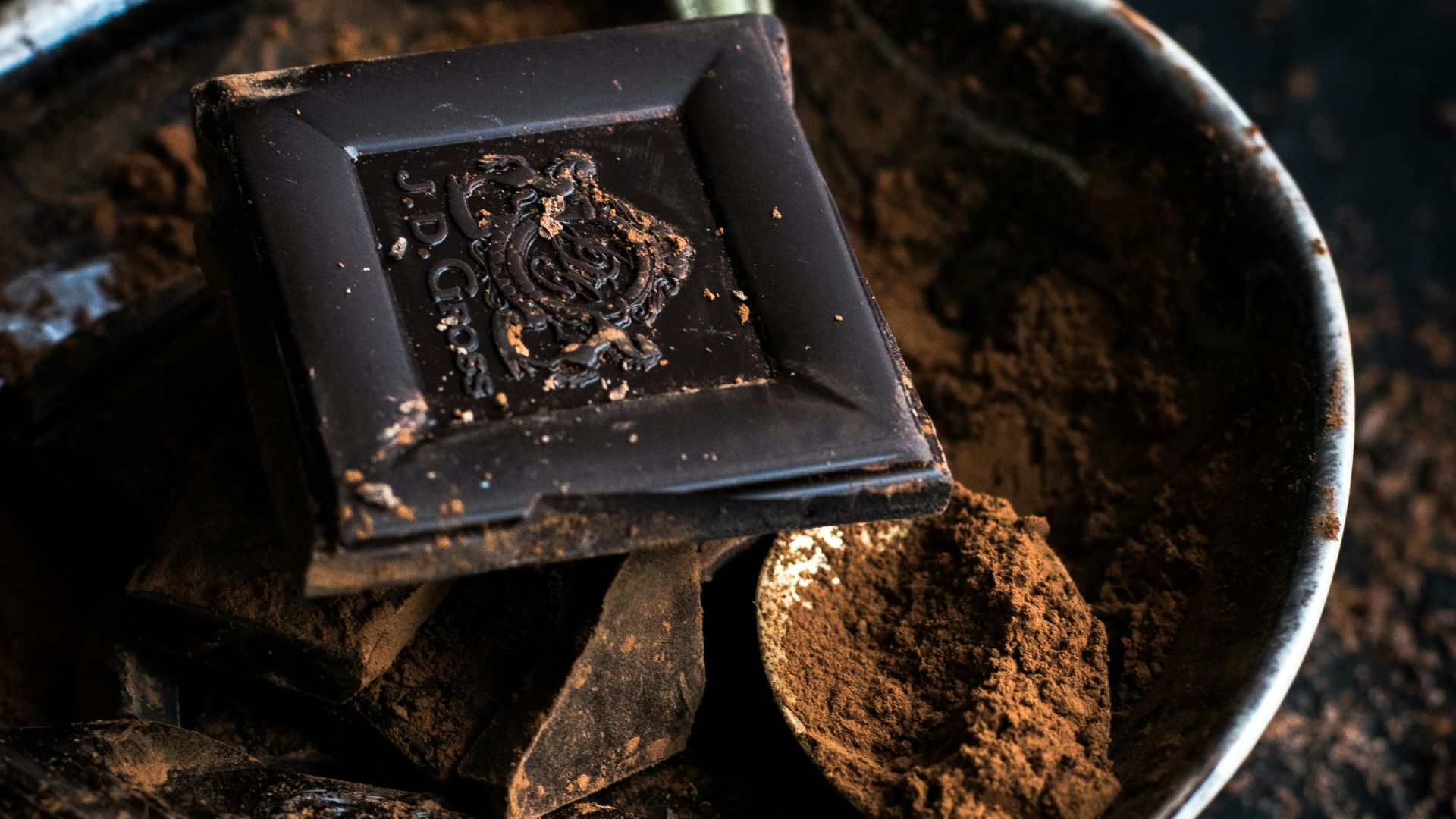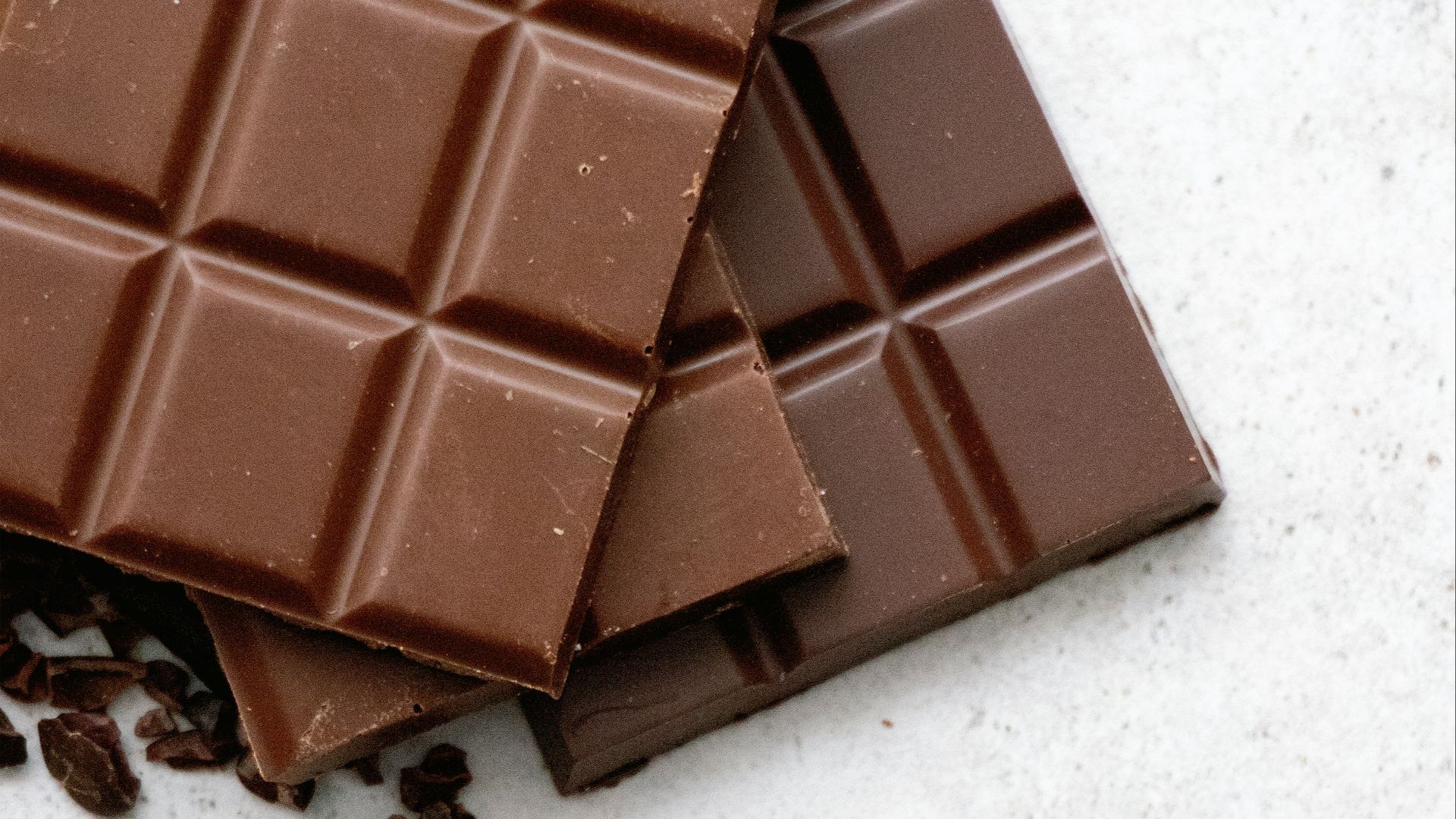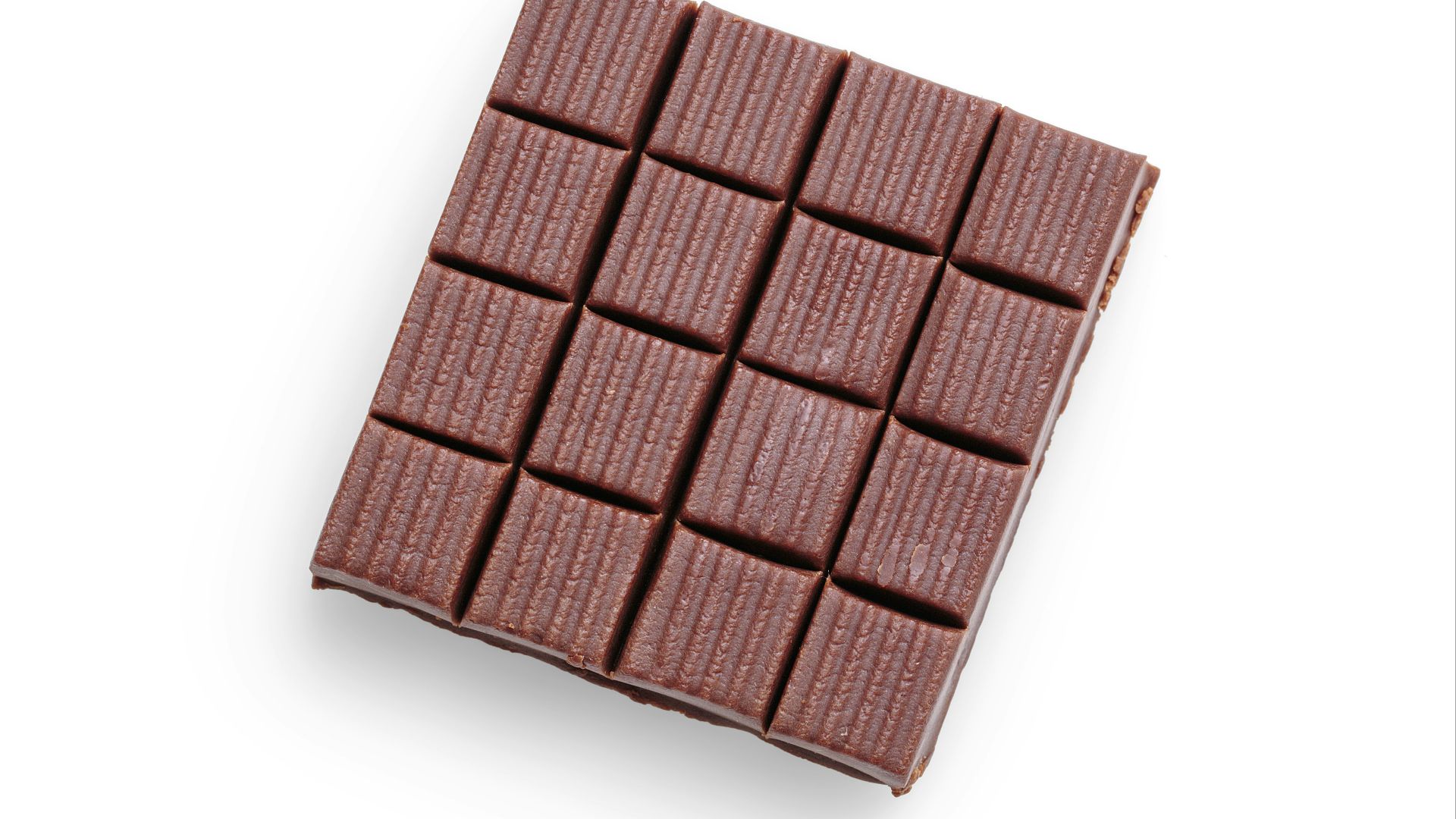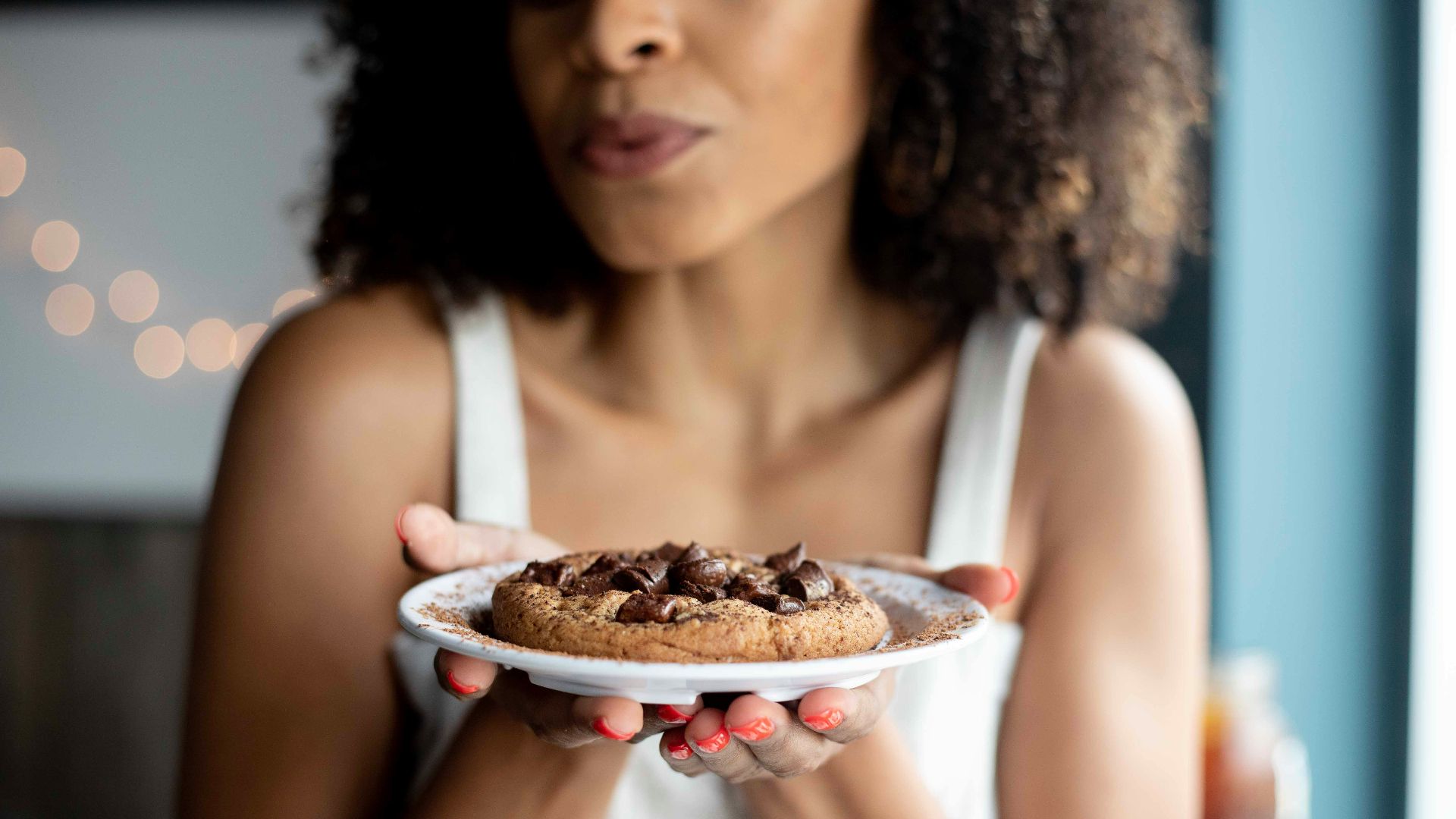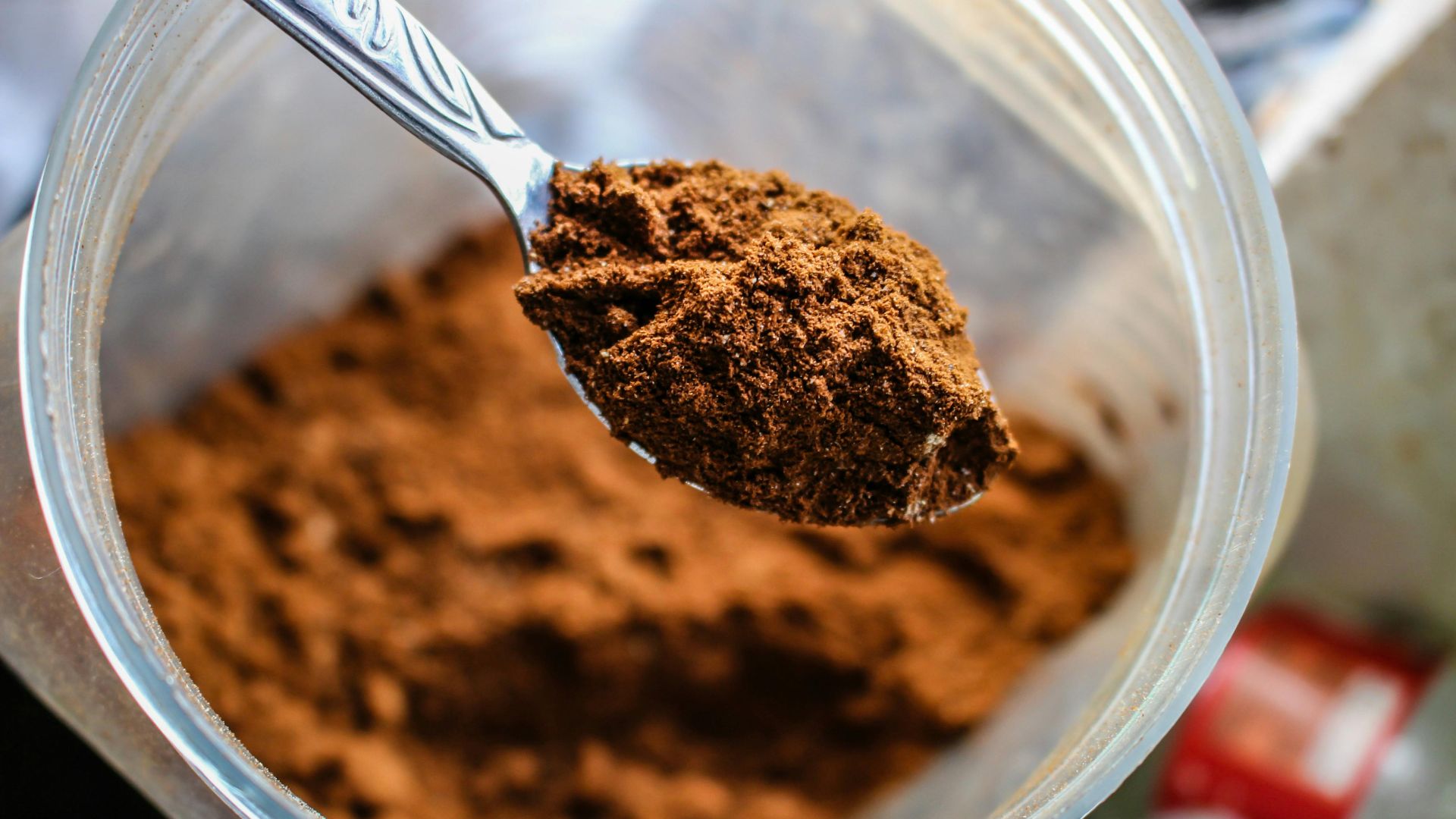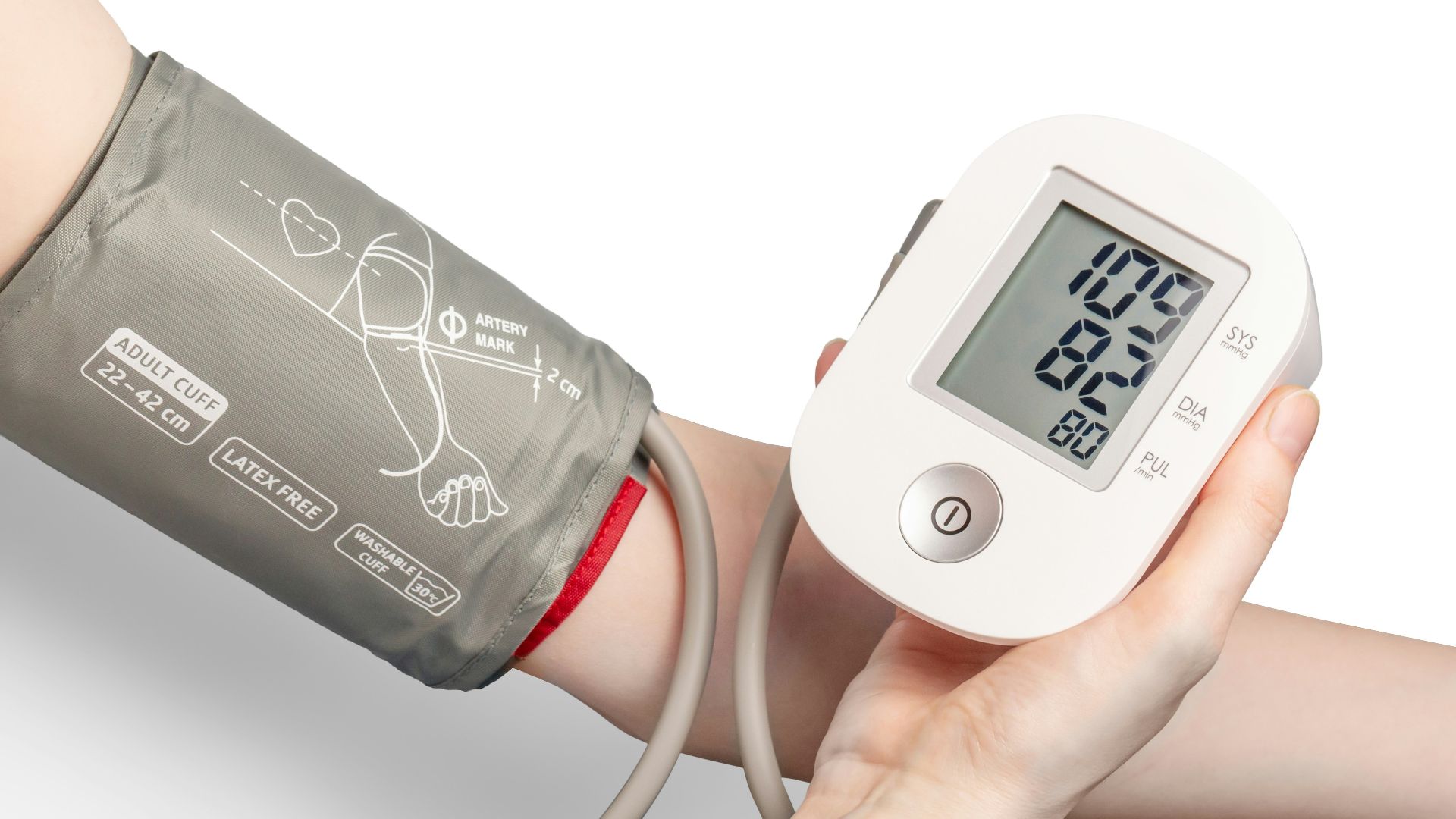10 Reasons You Should Stop Eating Chocolate & 10 Reasons It's Actually Good for You
To All the Chocolate Lovers Out There:
To eat chocolate or to not eat chocolate? This is an easy question to answer for those who aren't fond of the treat, but chocolate lovers might not find it so easy to give up. And yet, while these decadent bars can be high in sugar, fat, and calories, research shows that chocolate isn't always bad for you, especially when you choose healthier varieties (like dark chocolate) and eat in moderation. So, what's the verdict? Here are 10 reasons you might want to quit chocolate for good—and 10 reasons it can actually be beneficial.
 Photo By: Kaboompics.com on Pexels
Photo By: Kaboompics.com on Pexels
1. High in Fat
The most common gripe people have about chocolate is that it's high in fat; in fact, a single 100-gram milk chocolate bar can pack around 15 to 30 grams of fat. Most of this is saturated fat, which comes from the dairy content and cocoa butter.
2. High in Sugar
Not only is chocolate high in fat, it's also high in sugar. That same 100-gram bar can be loaded with as much as 60 grams of sugar, which exceeds the recommended daily intake by 10 grams if you're on a 2,000-calorie diet.
3. Contains Caffeine
With the exception of white varieties, all other forms of chocolate have caffeine in them, and the darker you go, the stronger this stimulant is. Theobromine, which gives dark chocolate its bitterness, is also present in cocoa solids, and it impacts the central nervous system along with caffeine. If you're sensitive to caffeine, you may have a harder time sleeping if you eat chocolate before bed.
4. High in Calories
Being high in fat and sugar, it comes as no surprise that chocolate is also high in calories. Dark varieties, while considered healthier, typically contain more calories than milk varieties as they're richer in fat, while the latter is richer in sugar. So, a 100-gram milk chocolate bar might amount to 540 calories, while a 100-gram dark chocolate bar has 600 calories.
5. Increased Risk of Heart Disease
Being high in fat and especially saturated fat, chocolate isn't the best snack for our hearts. The more you consume it, the more it may end up raising your LDL (bad cholesterol) levels, which can lead to heart issues, stroke, and disease.
6. May Trigger Migraines
While not everyone will be affected, eating chocolate can trigger migraines for some. In fact, chocolate is the second-most popular food trigger of migraines, as it contains caffeine and compounds like tyramine and phenylethylamine.
7. May Interfere with Iron Absorption
Cocoa is rich in polyphenols, a compound commonly found in coffee, fruits, and other plant-based foods. While they're great for their antioxidant properties, polyphenols are also known to interfere with iron absorption, and particularly non-heme iron. Cocoa can inhibit as much as 90% of iron absorption in the body.
8. May Lead to Digestive Issues
Though rare, some people may have allergic reactions when eating chocolate, leading to symptoms like hives, swelling, itching, and difficulty breathing. More commonly, people have an intolerance, such as to the dairy ingredients present in milk chocolate. Intolerances can cause extreme discomfort and digestive problems.
9. May Contain Heavy Metals
Before you peel the wrapper on your chocolate bar, you might want to check to make sure it doesn't contain any heavy metals. Traces of lead and cadmium, in particular, were found in popular brands of dark chocolate just a few years back, which may be due to being grown in contaminated soil.
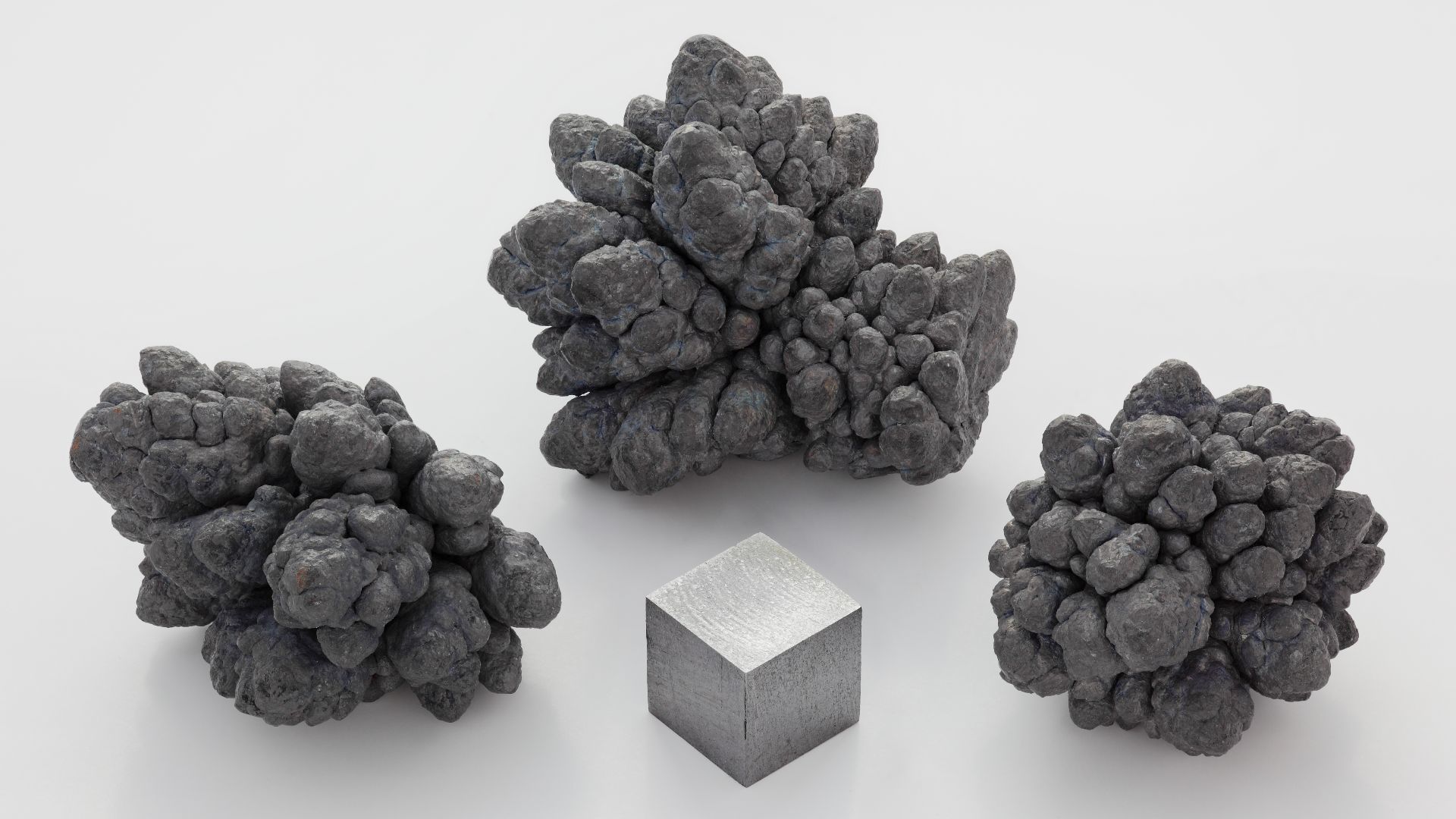 Alchemist-hp (talk) (www.pse-mendelejew.de) on Wikimedia
Alchemist-hp (talk) (www.pse-mendelejew.de) on Wikimedia
10. May Weaken Bones
The most convincing research to date that suggests chocolate could weaken bone density comes from a 2008 study, where older women who ate more chocolate than those who didn't were more likely to have thinner bones. Other experts believe that certain ingredients, like sugar, may be detrimental to bone health. Dark chocolate, however, may strengthen bones as it contains magnesium, which helps the body utilize vitamin D and allows for calcium absorption.
Is eating chocolate always bad? What if you can't give up this sweet treat? Don't fret—there are also ways eating chocolate (in moderation) can benefit you. Let's take a look at 10.
1. Can Be Highly Nutritious
Sure, milk and white chocolate can be extremely sugary, but dark chocolate is fairly nutritious. Not only do dark varieties contain essential nutrients, like iron, magnesium, copper, and manganese, they can also offer a good amount of fiber.
2. Rich in Antioxidants
But chocolate isn't only rife with healthy minerals, it's also rich in antioxidants. In particular, dark chocolate is high in flavonols, compounds that help fight inflammation and protect your cells against damage.
3. May Lower Blood Pressure
Because of the flavnols present in dark chocolate, which can stimulate the production of nitric oxide, eating this semi-sweet treat may also lower your blood pressure. Nitric oxide tells arteries to relax, which can ultimately reduce blood pressure. However, these effects may be minor, and may affect each person differently.
4. Could Improve Cognitive Function
Flavonols in dark chocolate may also improve brain function, and this could be due to increased blood flow (and reduced blood pressure) to the brain. Research suggests that flavonols in chocolate can lead to better reaction times, stronger memory, and healthier overall cognitive performance.
5. May Help with Weight Loss
This might come as a surprise, but eating chocolate may actually help with weight loss. Of course, overindulging could lead to weight gain, but certain nutrients, like fiber and epicatechin, can not only better regulate blood circulation, but also maintain healthy digestion. The key is to consume in moderation.
6. May Protect Your Skin from the Sun
There's more that flavonols can offer—for one, they might protect your skin against sun damage. This is because flavonols can increase the minimal erythemal dose (MED), or your skin's tolerance to UV rays. So, if you're planning a day at the beach, eat some dark chocolate before you go.
7. Boosts Athletic Performance
Because of epicatechin, a type of flavonol present in dark chocolate, consuming this sweet treat might even boost athletic performance. With improved blood circulation given the increased production of nitric oxide, you may find you can work out at higher intensities for longer.
8. May Help Combat Diabetes
Epicatechin may also help prevent or combat diabetes. Polyphenols in dark chocolate can enhance the function of insulin receptors. Additionally, being rich in magnesium, this mineral can support in regulating blood sugar levels and preventing insulin resistance.
9. Helps Fight Inflammation
Above all, the antioxidants present in chocolate help fight inflammation. By protecting your cells and fighting free radicals, eating chocolate may actually boost your immune system, as flavonols can reduce and prevent oxidative stress.
10. Boosts Mood & Reduces Stress
Eating chocolate boosts mood, and it's not just because it's delicious. In fact, this sweet treat may help stimulate the production of feel-good neurotransmitters like endorphins and serotonin. Furthermore, people who regularly consume dark chocolate may experience lower levels of anxiety and stress.
KEEP ON READING



